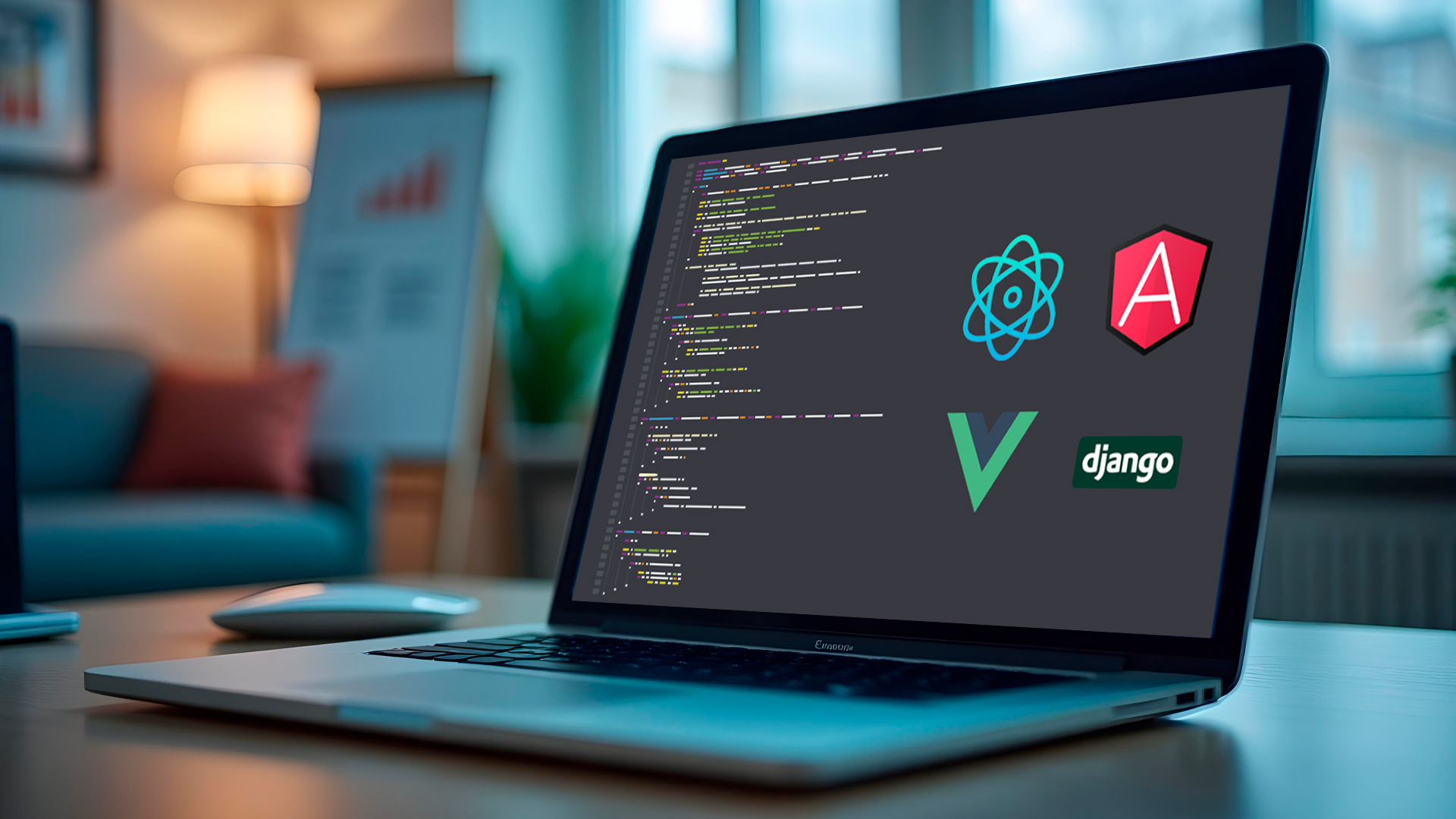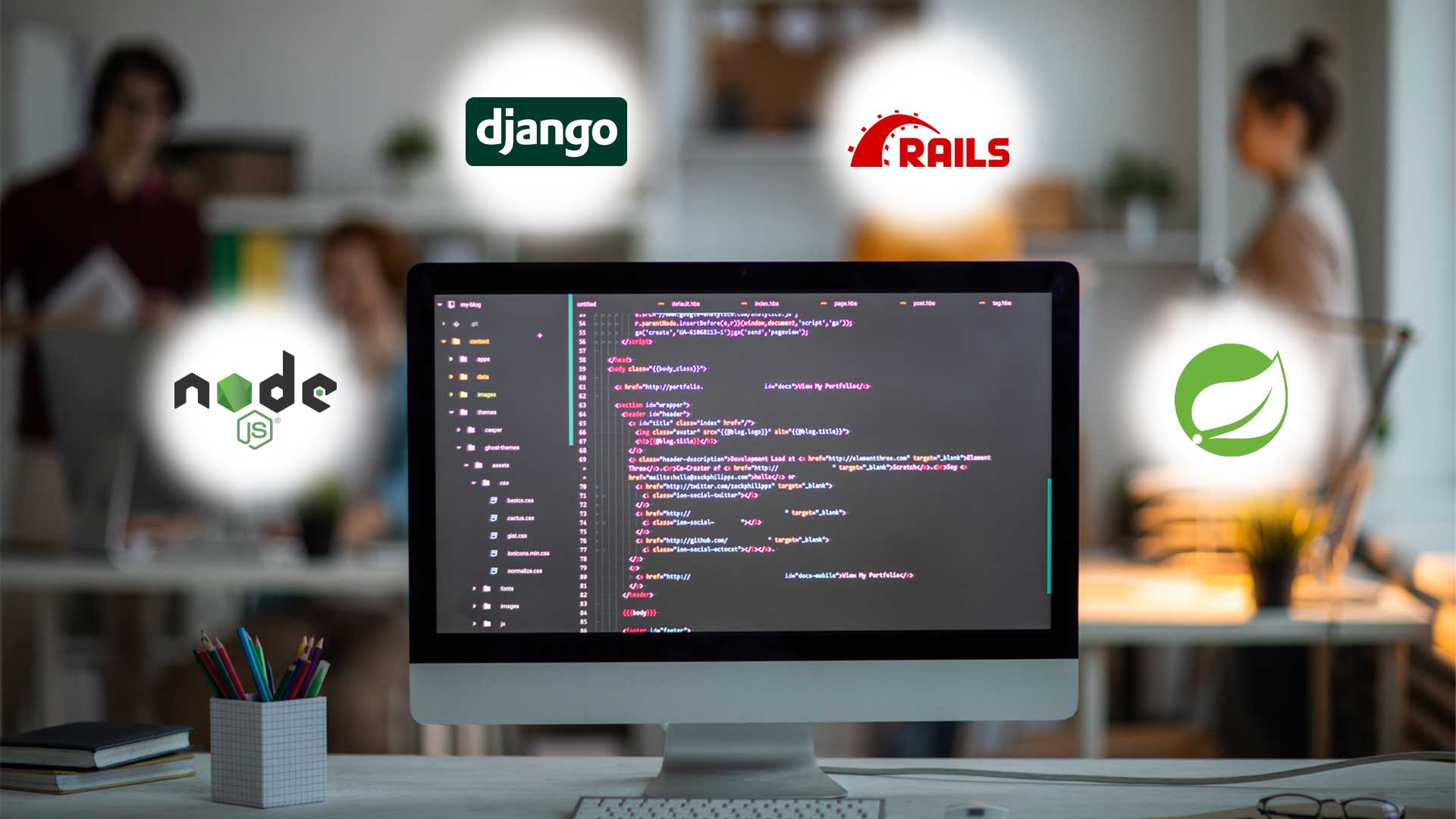

Choosing the best web development framework is the most important decision, and thus the starting point for your website creation journey. There are numerous web development frameworks available online, making it tough to choose which one is best for you. The frameworks under discussion will describe the fundamental structure of large, scalable, console-like web-based applications. Whether you are an experienced developer or just starting in the world of web application development, deciding which web development framework is perfect for you can have an impact on project success.
In this comprehensive article, we'll look at the best web development frameworks for 2025, including frontend, backend, and full-stack frameworks. We will look at the characteristics of several frameworks, how frameworks are used, and trend analysis in the area to help you choose the best framework for your needs.
Web development frameworks provide a foundation and structure for your code. They provide a baseline to help you get started quickly while keeping to security and best practices. They also include many common components, libraries, and utilities to help you speed up the process while maintaining high-quality coding.
Time savings is one of the greatest advantages of using web development frameworks. Instead of starting with a blank screen and writing all of your code from scratch, developers can use existing modules and the publicly available development community to hasten development. Frameworks usually come with some security features that mitigate the most common security vulnerabilities, including SQL injection, cross-site scripting (XSS), and cross-site request forgery (CSRF).
Scalability is another important consideration. Modern web development frameworks are made for scaling: they can accommodate more users and increase complexity, in terms of both features and applications that scale up. Because of this, a modern web development framework can be used for small projects (like a personal website) and large-scale enterprise web application development. Frameworks also handle browser compatibility so that your application works consistently across browsers and devices.
Web development frameworks can be broken down into three categories:

React.js, a web development framework renowned for creating dynamic user interfaces (UI), was developed by Meta (formerly Facebook). Unlike other frameworks that use a page-based architecture, React uses a component architecture and allows developers to build reusable UI components.
React relies on a core feature called the Virtual DOM, which gets updated segments of the DOM and makes the display of data faster. This performance boost is partly what makes React so reliable and fast, especially with single-page apps.
There are many libraries in the React platform, including Redux for state management and Next.js for server rendering. One drawback of React is that it has a learning curve; it is slightly more complicated than other frameworks, and developers often have to use different libraries for routing and effective state management.
Best For: SPAs, dynamic web applications like Facebook, Instagram, and Airbnb.
Angular is a complete web development framework created and developed by Google in the Model-View-Controller (MVC) model. It utilizes TypeScript, which adds additional capabilities and static typing to JavaScript.
Angular includes two-way data binding, allowing developers to easily synchronize the UI to the data model and vice versa. While it could create some extra performance overhead in larger apps, it simplifies development.
Angular is very opinionated and comes with a lot of features and a clear structure, which is usually good for enterprise-level apps but might be a little overwhelming to new developers.
Best For: Large-scale enterprise applications (ex., Gmail, Microsoft Office).
Evan, Vue.js is a progressive web framework that was designed to be flexible and easy to use. Unlike Angular, Vue.js was made to be incrementally adoptable, allowing developers to add it to their existing projects if they choose to.
Vue's reactive data binding and component-based structure are similar to React and Angular, however, there is a significantly shorter learning curve. It is also lightweight (~20KB gzipped) and more than sufficient for small- to medium-sized applications.
However, Vue's ecosystem is smaller than those of React and Angular and has less enterprise backing.
Best For: Startups, SPAs, and lightweight apps (for example, Alibaba and Xiaomi).
Svelte is a relatively new web development framework that works differently from other frameworks. Svelte compiles your components to extremely fast vanilla JavaScript at build time instead of using a Virtual DOM.
This results in extremely rapid performance and smaller pack sizes. Svelte's responsiveness is built-in, so you don't need to deal with complex state management libraries.
That said, Svelte is still a developing platform and may not yet be the best option for more significant projects.
Best For: Interactive UIs in a small to medium-sized project.

Node.js is a runtime that allows developers to create server-side JavaScript programs. Node.js is an incredible backend development framework when paired with Express.js to create APIs and backend services.
Node.js offers developers a non-blocking I/O model that is more efficient and scalable for real-time platforms such as chat apps and gaming. Another key advantage is an entire JavaScript stack to unify the frontend and backend.
With that said, Node.js can suffer from CPU-intensive tasks, and callback hell may be tricky if async / await is not used correctly.
Best For: APIs, microservices, and real-time applications (Netflix, LinkedIn).
Django is a high-level web framework for Python that follows a "batteries included" philosophy. It comes with a wide variety of features integrated right in (ORM, authentication, admin panel, etc.).
Django is popular because of its security features (anti-CSRF and anti-XSS support) and speed of development. This is why it is popular in the startup space, as well as larger enterprise tech stacks.
On the other hand, Django is less flexible in routing when used in microservice architectures, and the initial learning curve can be steep, especially for developers who are not familiar with Python.
Best For: Data-heavy applications (Instagram, Pinterest).
Ruby on Rails (Rails) is a server-side web Development framework written in Ruby. It is based on the convention over configuration (CoC) paradigm, limiting the amount of boilerplate code a developer has to write.
Rails is great for quickly prototyping a product and developing a minimum viable product (MVP). Due to the extensive library of gems (plugins), it is easy to implement and not too time-consuming for multi-feature apps. However, Rails has some performance bottlenecks when scaling, and it has lost favor to newer frameworks like Node.js and Django.
Best For: Startups and rapid application development (e.g., Airbnb, Shopify).
Spring Boot is a Java web development framework that makes it easier to create Java-based applications. Like other frameworks, Spring Boot is well-suited for microservices and large enterprise applications.
Spring Boot is a powerful framework due to its dependency injection and rich ecosystem, but the Java language is verbose, which could slow down development times compared to lightweight frameworks.
Best used for: Enterprise applications (i.e., PayPal, eBay).

While web development frameworks give much flexibility for building scalable and highly customized applications, most small businesses prefer using Content Management Systems (CMS) to build websites faster and more easily, as they may not have the technical resources that web development may require. CMS platforms have built-in themes and drag and drop capabilities with SEO tools and integrations, reducing the time spent coding from scratch. Here are some of the most popular CMS platforms for small business needs in 2025:
WordPress is still the most popular CMS platform worldwide, powering over 40% of the web. It is open source, customizable, and has thousands of plugins and themes available for almost every kind of industry. Whether you want to build a blog, operate a small business website, or an eCommerce website with WooCommerce, WordPress is powerful, adaptable, and likely to satisfy your needs as a beginner. It has strong community support and scalability options, as well as effective SEO functions. Developers and non-developers alike will find this an accessible tool for creating websites.
Best For: Content websites, blogs, and businesses that intend to grow or have ecommerce functionality.
If your small business specializes in online retail, Shopify is one of the best CMS platforms to evaluate. It is a fully-hosted solution designed specifically for eCommerce. Shopify offers an intuitive interface, customizable themes, built-in payment processing and efficient inventory management. There are many plugins and apps to support marketing, logistics, and customer engagement.
Best For: eCommerce businesses of all sizes.
Webflow blends the design flexibility of a traditional website builder with the functionality of a modern coding front-end. This software allows you to create visual web designs without having to write code, while exporting clean HTML, CSS, and JavaScript. Furthermore, Webflow has CMS capability and is suitable for all forms of dynamic websites (portfolios, agencies, blogs, etc.). It also focuses on adaptable design and has built-in SEO skills, making it appropriate for today's typical small business website.
Best For: Design-oriented websites for marketing teams without full-stack developers.
Squarespace is a website builder and hosting provider that is easy to use due to its attractive templates and drag and drop editor. It is an exellent tool for small business owners, artists, and entrepreneurs who want to create a clean and appealing website up quickly without worrying about the technical details. With Squarespace you can have a website that supports eCommerce, blogging, and scheduling appointments with clients. You get built-in analytics and SEO tools to grow your site as a single solution.
Best For: Creative professionals, small businesses, and visually appealing websites.
Wix is a cloud-based content management system (CMS) focused on visual web design. Wix has a drag-and-drop editor, hundreds of templates to choose from, and built-in SEO tools. Wix is a great option for small business owners, freelancers, and creatives looking to create an elegant online presence with minimal code. Wix offers hosting and is mobile-optimized, making it a perfect option for beginners.
Best For: Small businesses, freelancers, and beginners looking to get a website up in less time and with no coding. Excellent for portfolios, service-based businesses, and basic online stores.

Next.js is a web development frameworks that is built around the React framework, which allows for server-side rendering (SSR) and static site generation (SSG). Next.js is built specifically for creating React applications that are SEO-friendly.
Nuxt.js is to Vue as Next.js is to React. It provides both SSR and SSG capabilities and is one of the best options for building universal Vue applications.
Deno is a modern runtime for JavaScript and TypeScript that solves some issues with Node.js, including security and module usage.
Selecting any web development framework comes down to several considerations:
Choosing the best web development frameworks is not simple, and your choice can determine the trajectory of your project. In addition to serving frontend frameworks - React, Angular, and Vue.js for your user interface interaction, and server-side logic frameworks - Node.js, Django, and Spring Boot to help you build your backend, you should look at Next.js and Deno as two developing solutions to support web development and ultimately modernize your apps.
Once you know the pros and cons of any type of web development frameworks, you will be better equipped to make an educated decision aligned with your project's business goals.